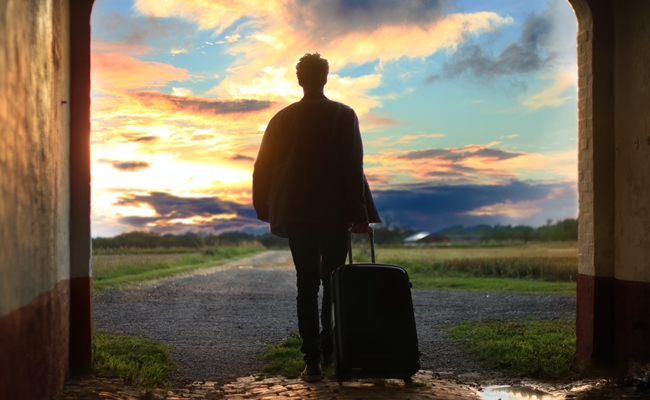Caught the travel bug? Here’s some essential advice that you need to learn before setting off on your whirlwind adventure.
So, you've finally decided to take that international trip. Maybe you've decided to move abroad for a job opportunity, or maybe you want to study and further your academic career, or maybe it's simply that tropical vacation that you’ve been dreaming about.
Whatever your reasons are, travelling is a daunting task, especially if you are experiencing it for the very first time. That is why it is essential to plan and prepare as best as you can. This will help you waste less time worrying about your stuff and maximize travel and touring time.
Here are some things you should keep in mind to ensure a smooth and safe travelling experience.
Foreign travel means strange places and strange internet. That is why we also recommend using a VPN such as ExpressVPN to keep your browsing experience as safe as possible too. Click here to read full ExpressVPN review and secure your browsing experience today.
Seven things you should have while travelling abroad
1. Your passport
Arguably, the most essential item in your arsenal is your passport. It is an absolute requirement that one cannot compromise on. Your passport is essentially something of a key to other countries. Every country you travel to stamps onto your passport that you have travelled to that particular country
It is usually recommended that you get your passport made months before you have any travelling plans. This is especially essential when you have to apply for a visa to a particular country.
In that case, the embassy will always ask for your passport among other documents.
If you are going to travel internationally then it is recommended that you get some copies made of the pages stamped on your passport and put them aside. This way, if you ever lose your passport accidentally, you can have some proof on hand that you are in a certain country legally.
2. Speaking of visas
Visas are just as essential as a passport, more so in some ways. Not every country has equally strong passports. That’s where visas come in.
There are many different types of visas. From educational/academic visas to business visas to tourist visas and many more. And they are proof that you have permission to not only enter a country but partake in a particular activity within said country.
When travelling, it is recommended that you apply for visas as early as possible, this will ensure that there are no delays or other issues when you decide to book your flight and finally travel to said country. So, check exactly what kind of visa you require, take all relevant documents and apply for that visa ASAP.
3. Pay a visit to the doctor
They say that it is better to be safe than sorry, and that adage applies to travelling quite strongly. It is a good idea to pay a visit to the doctor because you might need vaccines. Travelling to certain places in Asia, Africa or the Americas, you are required to get certain vaccines that you might not have. Such as the Yellow Fever Vaccine that is required for one to travel to Colombia.
4. Travel insurance
Precautions are necessary for all forms. That is why it is highly recommended that you also get travel insurance when going abroad. Travel insurance ranges from medical coverage to baggage insurance and even tech gadgets such as your phone, camera, and others.
Travel insurance options range from low premium options to high ones. Most insurance agencies also offer specific kinds of travel insurance to cater to your needs.
5. Be mindful of your budget
Whether you plan to stay abroad for a short time or a long time, if you don’t have exorbitant amounts of money to spend then it is a good idea to have a pre-decided and planned budget.
This is especially recommended if you plan to stay for a long time.
Research the country and the cost of living. Factor in essential things like accommodation, food and transport first. Then you can focus on factoring in other things like entertainment, buying souvenirs and other such purchases.
Another tip is to have emergency funds stashed away. These aren’t necessarily funds that you will use, not unless you absolutely have no other option. Also, keep a mix of cash on hand and credit cards. This will ensure that you are ready for all situations.
6. Research your destination
If it is your first time abroad, then you will most definitely experience culture shock. Even most veteran travellers take time to adjust to the environment of a country other than their own. So, that’s why we recommend researching your destination appropriately. There are things that are exclusive to each country.
This can range from certain behavior to dressing to rules, laws and regulations. So, pull up all essential information and keep it in your mind for when you do travel.
7. Pack right
No one likes a heavy-packer. Yes, it’s a good thing to be prepared but there is such a thing as overpacking. And carrying too much can be a hassle. So, pack appropriately. Take only essentials. Find out the weather conditions for when you will be arriving. Take advice from locals through online forums such as Reddit.
Once you get to know the country, you will realize what you need and what you don’t.
To wrap up
So, now that you have everything ready and have done your research, you are ready to set off on your amazing adventure. All these tips will help you stay on the right track, save you money and make your trip as smooth as possible.





























































































































































































































